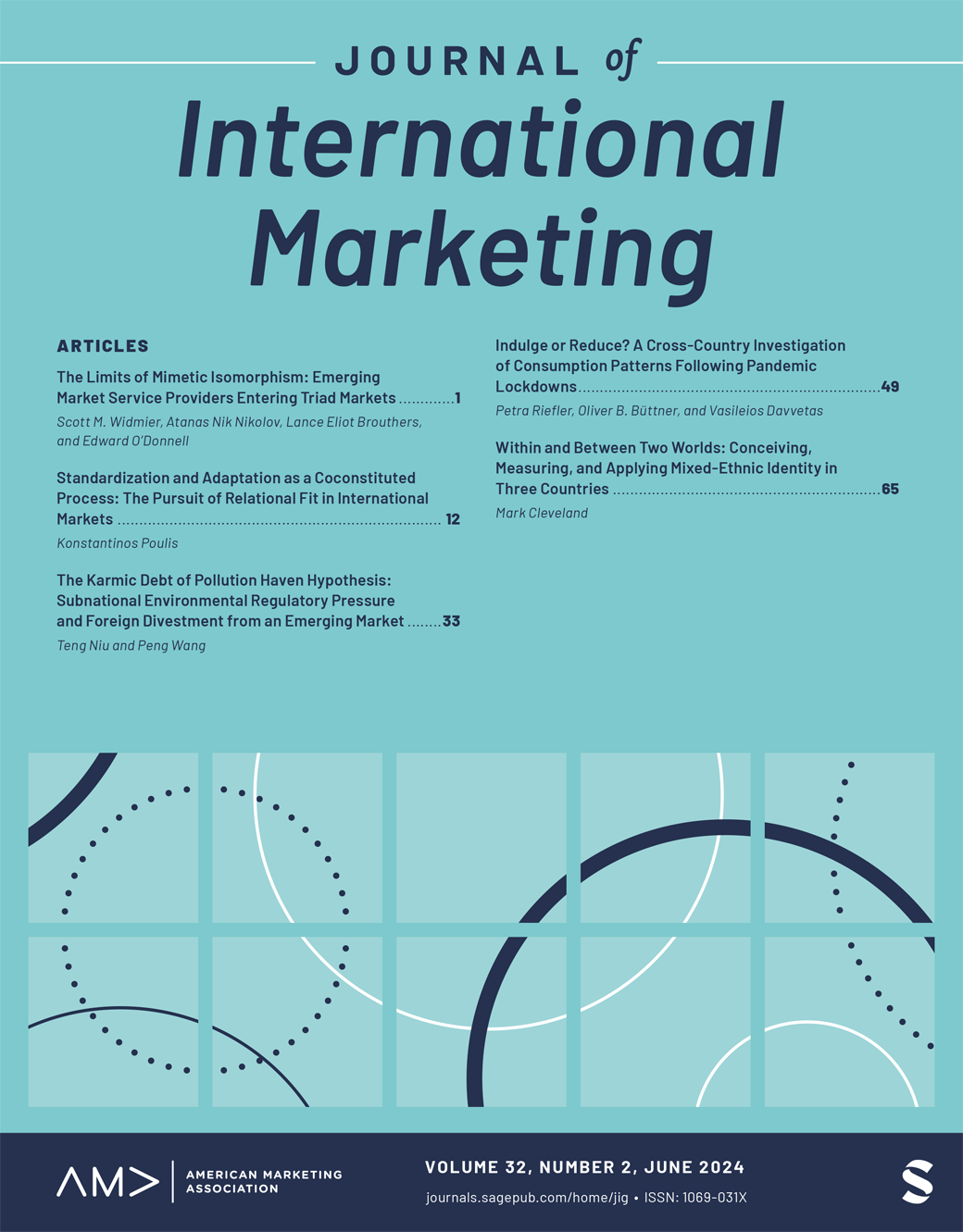Current and Future Financial Well-Being in 16 Countries
IF 4.9
2区 管理学
Q1 BUSINESS
引用次数: 7
Abstract
Financial well-being—the evaluation of current personal finances and expectations for the financial future—has gained attention in research, practice, and policy. Yet, there is no consensus on its conceptualization or its operationalization. The authors contribute to this area of research by proposing a conceptual framework and reassessing a measure used in data on subjective financial well-being from 16 countries. The findings highlight methodological concerns in international marketing studies and show not only financial well-being but also its measures to be context dependent. Furthermore, although many studies use unidimensional financial well-being measures, some conceptualizations have at least two components: a current and a future element. The authors analyze the effects of individual and contextual factors on current and future financial well-being and explore their possible interaction. They observe income to be a significant predictor of both components of financial well-being, while institutional settings are correlated with current financial well-being and national culture with future financial well-being. They conclude that initiatives aimed at increasing financial well-being need to clearly target either its current or its future component as their antecedents differ.16个国家当前和未来的财务状况
财务状况——对当前个人财务状况的评估以及对未来财务状况的预期——已经在研究、实践和政策中引起了人们的关注。然而,对其概念化或实施没有达成协商一致意见。作者提出了一个概念框架,并重新评估了来自16个国家的主观财务状况数据中使用的衡量标准,从而为这一研究领域做出了贡献。研究结果突出了国际营销研究中的方法论问题,并表明不仅财务状况良好,而且其衡量标准也取决于具体情况。此外,尽管许多研究使用单向度的财务福利衡量标准,但一些概念至少包含两个组成部分:当前和未来元素。作者分析了个人和环境因素对当前和未来财务状况的影响,并探讨了它们之间可能的相互作用。他们观察到收入是财务健康的两个组成部分的重要预测因素,而制度设置与当前的财务健康和国家文化与未来的财务健康相关。他们得出的结论是,旨在提高财务福利的举措需要明确针对其当前或未来的组成部分,因为它们的前提是不同的。
本文章由计算机程序翻译,如有差异,请以英文原文为准。
求助全文
约1分钟内获得全文
求助全文
来源期刊

Journal of International Marketing
BUSINESS-
CiteScore
8.70
自引率
17.20%
发文量
28
期刊介绍:
As the globalization of markets continues at a rapid pace, business practitioners and educators alike face the challenge of staying current with the developments. Marketing managers require a source of new information and insights on international business events. International marketing educators require a forum for disseminating their thoughts and research findings. Journal of International Marketing(JIM) is an international, peer-reviewed journal dedicated to advancing international marketing practice, research, and theory. Contributions addressing any aspect of international marketing management are published each quarter.
 求助内容:
求助内容: 应助结果提醒方式:
应助结果提醒方式:


